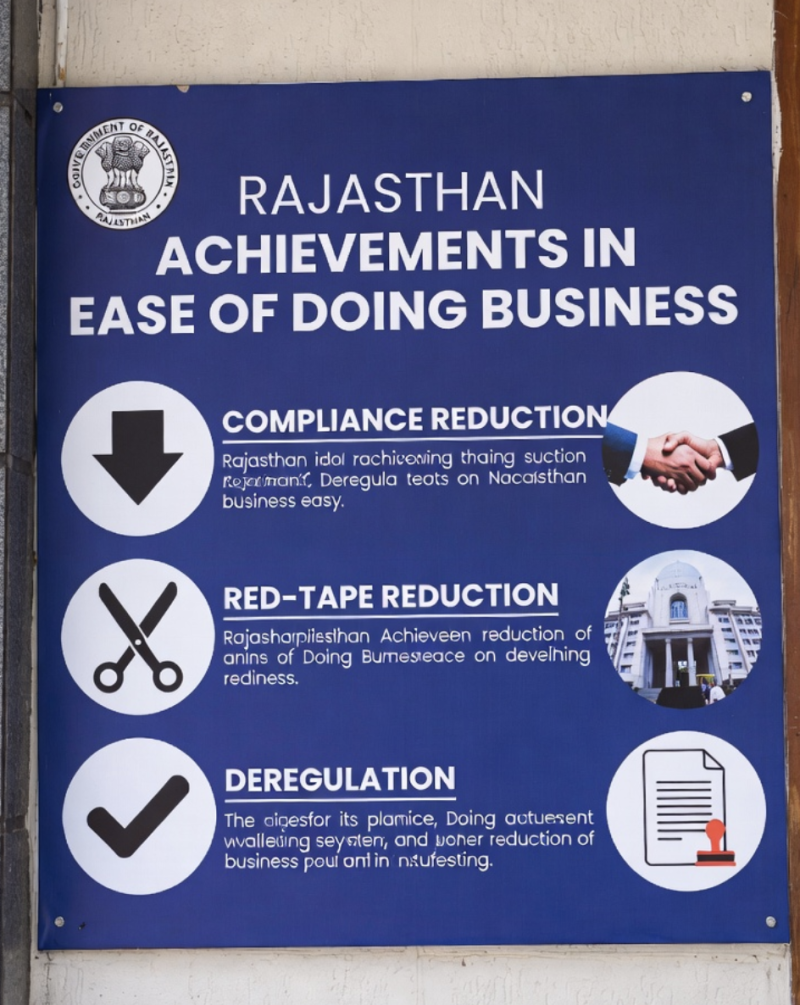Cabinet Secretary, Dr. T. V. Somanathan, in a video conference with Chief Secretaries across the country on 14th November 2025 reviewed the initiatives undertaken under the Compliance Reduction and Deregulation agenda.
During the interaction, Rajasthan Chief Secretary, Shri Sudhansh Pant, highlighted the State’s strong commitment to reducing compliance burdens under the Ease of Doing Business (EoDB) framework. Key actions taken to streamline processes and improve the overall regulatory environment in the State where presented.
The Cabinet Secretary, GoI appreciated Rajasthan for regaining strong momentum in its Compliance Burden Reduction Programme within a short period. He commended the State for its exemplary performance and the significant progress achieved in simplifying, rationalising, and modernising regulatory frameworks to build a more business-friendly ecosystem.
Rajasthan has undertaken a series of transformative reforms that demonstrate its sustained commitment to enhancing the Ease of Doing Business ecosystem. To support the growth of MSMEs, the State has simplified the Change of Land Use (CLU) process through amendments to Rule 90A, reducing approval timelines from 60 to 30 working days, with deemed approval thereafter. This has substantially cut delays and enabled faster establishment of new enterprises.
In the area of environmental compliance, Rajasthan has made remarkable progress by reducing the timelines for third-party certification for Consent to Establish (CTE) and Consent to Operate (CTO) from 120 days to 21 days for MSMEs and to 60 days for Red/Large industries. Additionally, the Pollution Control Board has introduced system-generated auto-renewal of CTO for all categories, including green industries, based on self-certification. Rajasthan has also undertaken an extensive expansion of the White Category industries, increasing the list from 104 to 877 by amending the Water and Air Pollution Rules. This move exempts a larger number of non-polluting industries from the requirement of consent, thereby facilitating quicker project approvals and industrial growth.
To ease the regulatory load on micro-enterprises, Rajasthan has increased the employee threshold under the Rajasthan Shops and Commercial Establishments Act, 1958, from 0 to 10 employees. In addition, the State has streamlined fire safety compliance by operationalising third-party fire inspections through empanelled agencies and extending the validity of Fire NOCs.
Rajasthan is among the leading States in rationalising minimum road width requirements for rural industries, with norms fixed at 9 metres for areas with layout plans and 4.5 metres for those without. The State has also implemented major reforms to optimise land utilisation in industrial and commercial areas. Urban Development and RIICO have amended building norms to reduce land loss and adopted improved FAR practices, resulting in a BAR ranging from 2 to unlimited, along with rationalised parking norms. The earlier cap of 50% ground coverage for commercial plots has also been removed, promoting greater flexibility in urban planning.
To enhance investor facilitation, the State’s Single Window System, RajNivesh, has been strengthened with Chatbot that integrates information from multiple departments, offering seamless and efficient support to investors.
Through these extensive and forward-looking reforms, Rajasthan has reaffirmed its position as one of India’s leading States in compliance reduction, deregulation, and investor facilitation, demonstrating its continued commitment to fostering ease of doing business and enabling faster, transparent, and efficient governance.
Several senior officials participated in the video conference, including Shri Sandeep Verma, Shri Ajitabh Sharma, Shri Dinesh Kumar, Shri Devashish Pushti, and Shri Rohit Gupta.


